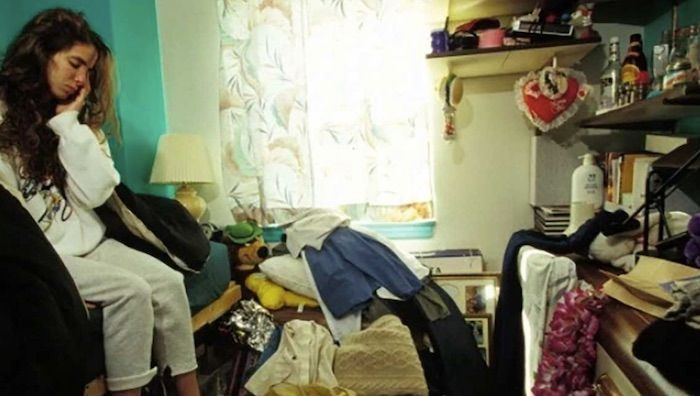
Hoarding disorder is considered one of the anxiety disorders because it can lead to severe distress in its sufferer. Put simply, the individual hoards or finds it difficult to part with belongings because they are afraid of losing them. Many see this as a predisposition to acquire or hang onto things that they find meaningful rather than a problem. Individuals perceive things differently from one another. Now, a lot of people may provide a lot of different explanations for why they never throw anything away and instead save everything, but we know that they have a hoarding disorder.
SITUATIONS: NOT ABLE TO THROW IT AWAY WITHOUT BEING VERY ANXIOUS: The question of whether anything will ever work out for their benefit is one that they must continuously ask themselves. or if, after throwing it away, they disposed of it incorrectly. Because so many different questions arise in their heads, they wind up not getting rid of anything that seems useless to them. The cause could be anything, including an irreparably broken lamp. Still, you choose to keep it because it reminds you of a particular time in the past, among other reasons. But it is an obvious sign of hoarding disorder. True, we associate certain objects and scents with memories, but we also behave logically and get rid of stuff that isn't needed.
THEY GET FREEDOM IN DECIDING WHERE TO STORE THEIR POSSESSIONS: To be uncertain about your belongings is to be uncertain about everything else on an entirely new plane. People who suffer from hoarding problem are quite unclear about how to organize their belongings. You end up putting it in your closet because you know deep down that it's not worth the hassle, even though they can't stop thinking about how beautiful a ripped picture would look in the living room. The disorder known as hoarding can cause you to feel very insecure about how you arrange your possessions and manage the never-ending clutter. Not only are you not getting rid of stuff, but you're also amassing a ton of crap that you might not even use in the near future.
They struggle to keep their possessions organized. They find it difficult to claim priority over their personal possessions. They don't know what should be ranked higher or lower. They have the advantage of not being materialistic in the slightest, which makes them believe that everything is equal. They want to keep everything visible, and they get very upset if they discover something is missing. This can result in accusations of theft being made against other individuals, which could be detrimental to interpersonal ties. As a result, they become toxic to those they associate with. It can be rather unpleasant to share a room with someone who has hoarding disorder because there is hardly any space for your possessions.
A person becomes possessive when they touch their possessions: Items that hold significance for an individual are possessed by everyone. These folks are just crazy about their belongings. It might be your beauty bag for you, and it could be my collection of baseball cards. They will become angry if you touch something that they own.
They'll be terrified that their belongings could be mishandled or destroyed by someone who just touches them. They grow incredibly enamored and protective of their belongings. This characteristic may cause relationships to falter since people prefer to be with their partners in safe spaces. They also make an effort to distance themselves from their partner if they are uncomfortable handling their possessions. These kinds of relationships often end up poisonous and fleeting. It could be harmful to you as well if you have hoarding condition. You won't be able to do the activities you enjoy because you'll look awkward.
a dread of running out of something that makes planning ahead necessary. To make sure they haven't thrown anything away that they didn't want to, they could even become obsessed with constantly checking the trash. This could become rather uncomfortable. Not many people think this kind of behavior is admirable. As a result, people were unable to regulate the assignments they had to finish. Lack of focus might spoil your entire day because it will prevent you from concentrating on your assignment. You'll continuously fade out and question whether everything is in its right place; you'll continuously be concerned about your belongings and question whether anything is missing.
You may even lose your work if you are unable to prevent your focus from straying, which can be challenging if you have a hoarding problem. Their capacity to go about their daily lives may be impacted if they end up hoarding to the point where their living area is destroyed.
Owing to their disorder, they might stay isolated forever: Being preoccupied with your goods and worrying about their safety makes you spend more time with them, isolates you from friends and family, and makes you obsessive over your possessions. Giving up is acceptable. The hoarding problem is simply treated if you visit a doctor and learn how to let go of things. Nothing endures forever. Loneliness and isolation have the power to squander your best years and wreck your life. Before things get out of hand and your fixation becomes uncontrollable, learn to let things go.